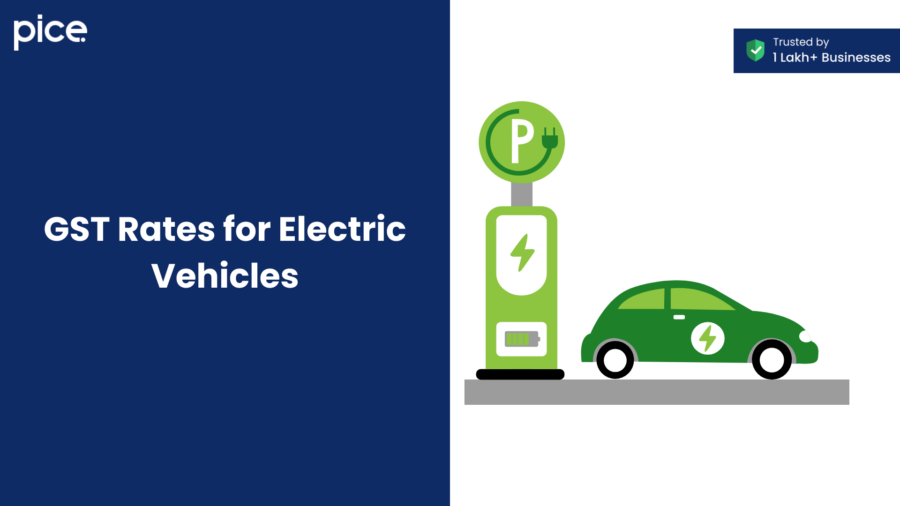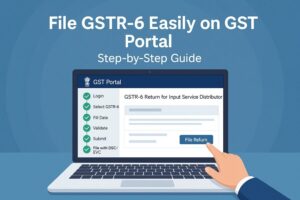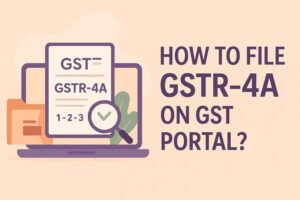GST Applicability on Pre-Owned and Refurbished Cars
- 24 Sep 24
- 9 mins

GST Applicability on Pre-Owned and Refurbished Cars
Key Takeaways
- GST on personal-use vehicles ranges from 5% to 28%, with different rates for electric, fuel cell, and disabled-use vehicles.
- Compensation cess applies to specific goods, such as motor cars, coal, and aerated water, in addition to GST.
- The GST rate for commercial vehicles varies between 12% and 28%, depending on the vehicle type and use.
- GST on used cars is set at 12% or 18%, with no compensation cess, boosting the pre-owned car market.
- The GST rate for electric vehicles has been reduced to 5%, promoting cleaner transportation options.
The Goods and Services Tax has made an impact on various sectors in India, including the automobile sector. The pre-owned and refurbished cars market has seen significant growth over the years. However, GST has brought several changes to the rates and applicability of tax on the purchase and sale of used cars.
In this blog, we will discuss GST on cars purchased for personal use, compensation cess, GST rate of old commercial vehicle sales and other relevant aspects.
Handle all your sales and purchase invoices in one place.
Pice’s all-in-one invoice management tool helps you track, send, and organize invoices from a single dashboard. Automatically share new invoices with customers, send timely payment reminders, and keep your collections under control—effortlessly.
Want early access? Fill out this form to get request a demo!
GST on Cars Purchased for Personal Use
The Goods and Services Tax applicable on vehicles which are purchased for personal use ranges between 5% and 28%. These vehicles include bicycles, motor vehicles and cars. Along with the vehicles, the replacement parts and accessories also attract GST. The lowest GST rate of 5% was introduced in 2018 at the 31st GST Council Meeting. It applies to motorised or non-motorised carriages which are driven by disabled people and the parts of these carriages. A GST rate of 12% is applicable on:
- Vehicles which are driven by fuel cells like hydrogen fuel cell technology
- Non-motorised cycles bicycles and delivery tricycles including their accessories and parts
- Two or three wheelers which are driven by electrical motors
- Animal-drawn and hand-driven vehicles like hand carts, rickshaws, etc.
An 18% GST rate is applicable on:
- Carriages for babies and its parts of replacement
- Vehicles for disabled people (terms and conditions applied)
On the other hand, a GST rate of 28% is applicable on:
- Mopeds and motorcycles, irrespective of sidecars
- Accessories and parts of mopeds and motorcycles as well as sidecars
💡If you want to pay your GST with Credit Card, then download Pice Business Payment App. Pice is the one stop app for all paying all your business expenses.
Compensation Cess Under the GST Act
Compensation cess, introduced as a part of the Goods and Services Tax Act, refers to a type of charge which is applicable on some goods in addition to the GST. Before the implementation of GST, producers used to collect Value-Added-Tax (VAT) in cases of interstate trade. Compensation cess under GST compensates the manufacturing states or the producers for possible losses.
It is important to remember that compensation cess does not apply to goods exported by India. Some goods where compensation cess is applicable are:
- Solid fuels like coal derivatives, coal, ovoids and briquettes
- Motor cars
- Aerated water
GST Compensation Cess for Automobiles
Let us take a look at the table below to learn about the applicable tax rate and compensation cess on sale of different types of vehicles:
| Vehicle Type | Rate of GST | Compensation Cess |
| Petrol/LPG/CNG vehicles less than 1200cc engine capacity and more than 4 metres in length | 28% | 15% |
| Petrol/LPG/CNG vehicles less than 1200cc engine capacity and less than 4 metres in length | 28% | 1% |
| Diesel vehicles of engine capacity less than 1500cc and more than 4 metres in length | 28% | 20% |
| Diesel vehicles of engine capacity less than 1500cc and less than 4 metres in length | 28% | 3% |
| Diesel cars greater than 1500cc engine capacity, more than 4 metres in length and 170mm or more ground clearance | 28% | 22% |
| Motorcycles with more than 350cc engine capacity | 28% | 3% |
| Vehicles eligible for ambulance use | 28% | Nil |
| All electric vehicles sizes (including two or three-wheelers) | 12% | Nil |
| Motorised vehicles (three-wheelers) | 28% | Nil |
| Motorcycles/mopeds with engine capacity of more than 350cc | 28% | Nil |
| Fuel cell cars as well as hydrogen fuel cell technology cars | 12% | Nil |
GST on Commercial Vehicles Explained
Commercial vehicles are those vehicles which are meant for agricultural use or carry goods and passengers. The applicable GST rate on such cars ranges between 12% and 28%.
A GST rate of 12% is applicable in these cases:
- Self-loading trailers or self-unloading trailers used for agriculture
- Tractors (excluding road tractors) used for semi-trailers with engine capacity of more than 1800cc
A GST rate of 18% is applicable in these cases:
- Refrigerated motor cars
- Special Purpose Vehicles (SPV) like breakdown lorries, crane lorries, etc.
- Buses which run on biofuels and are used as public transportation
- Self-propelled trucks excluding lifting or handling tools which are used for goods transportation over short distances
A GST rate of 28% is applicable in these cases:
- Motor cars for transportation of 10 or more people (except public transport buses which are powered by biofuel)
- Accessories and parts of different motor cars (except tractor parts)
- Semi-trailers or road tractors with engine capacity of more than 1800cc
In addition to the fixed rate of GST on commercial vehicles with a seating capacity of 13 people (including drivers), a compensation cess of 15% is applicable.
GST Regulations for Used Cars
The rates on used cars were reduced for the growth of the market. Presently, a GST rate of 12% is levied on small used cars (petroleum gases) with up to 1200cc engine capacity. For diesel cars, the engine capacity limit is up to 1500cc. If the engine capacity of used cars exceeds 1200cc and 1500cc (for petrol and diesel cars respectively), 18% GST is charged.
Compensation cess on all sizes of used cars has been set to Nil rate, provided there has been no claimant of Input Tax credit (ITC) under the credit scheme of CENVAT.
Let us take a look at the table below to understand the GST regulations for used cars:
| Category of Used Car | GST | Compensation Cess | Total Tax |
| Petrol cars with engine capacity of more than 1200cc | 18% | Nil | 18% |
| Petrol car till 1200cc engine capacity | 12% | Nil | 12% |
| Diesel car with more than 1500cc engine capacity | 18% | Nil | 18% |
| Diesel car till 1500cc engine capacity | 12% | Nil | 12% |
GST Rates for Electric Vehicles

Before the 36th GST Council Meeting, the GST rate applicable to electric cars was 18% and their accessories. Since the Council Meeting, the reduced rate was 5%, irrespective of their commercial or private use. This rate applies to charging stations and EV chargers as well.
GST on Sales of Used Car Parts
Used car dealers, along with selling used cars, also sell parts of these cars. A GST rate of 28% is levied on auto parts. However, it is important to remember that the rate of tax varies depending on the type of accessories and parts.
GST Impact on Pre-Owned Car Dealerships
The impact of GST on pre-owned car dealerships are:
- Better Management of Supply Chain: Regarding the reduction in transportation and logistics costs, the complete supply chain solution has also improved. Additionally, interstate car transportation has turned into more affordable and smooth.
- More Compliance Requirements: With the implementation of GST, the business compliance requirements for pre-owned car dealerships have increased. They need to file regular GST returns, be subjected to audits, etc.
- Increase in Transparency: Under GST, second-hand car dealerships are eligible to claim Input Tax Credit for the GST they have paid on purchase. This helps in reducing the tax liability.
The Bottom Line
The Goods and Services Tax made a significant mark on the pre-owned and refurbished cars market in India. It has simplified the taxation structure which increased transparency and growth. For instance, the reduction in the GST rate of old commercial vehicle sales to 12% has increased sustainability and has been beneficial for consumers.
 By
By 

















